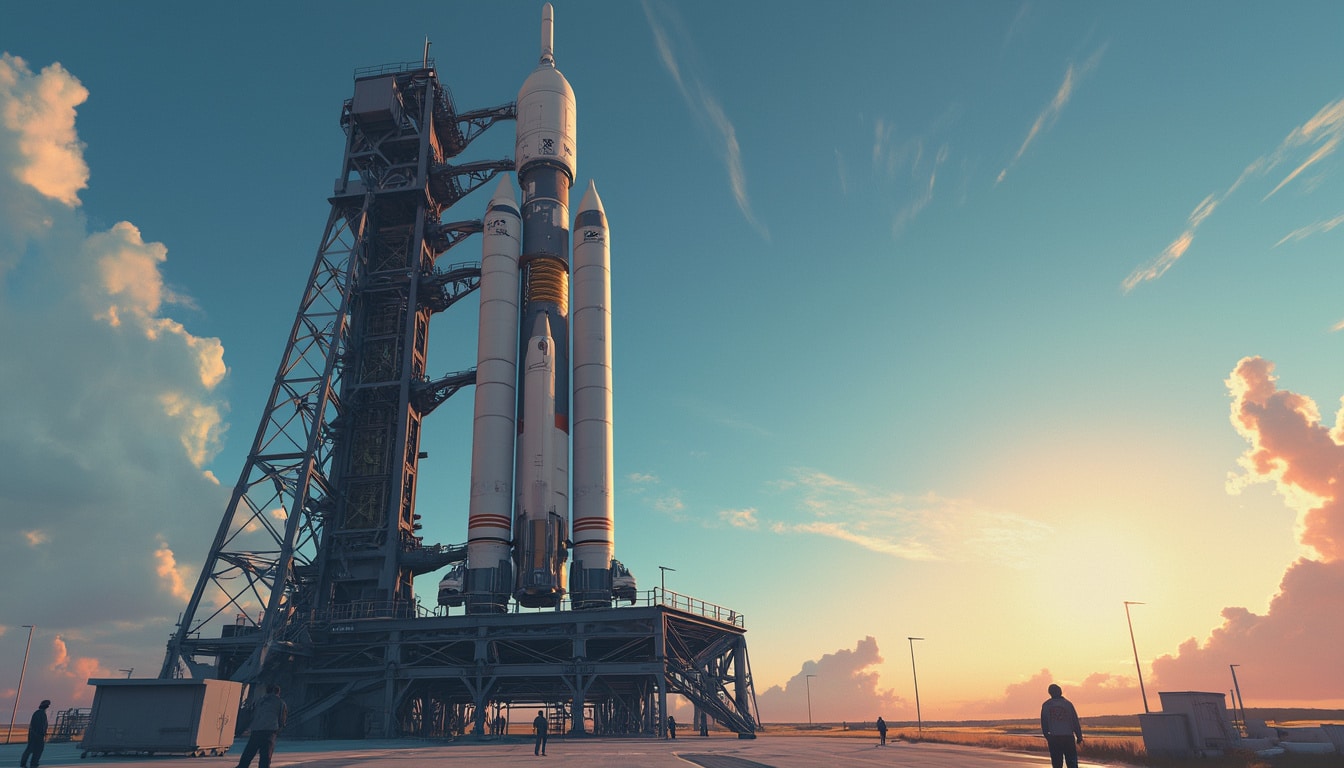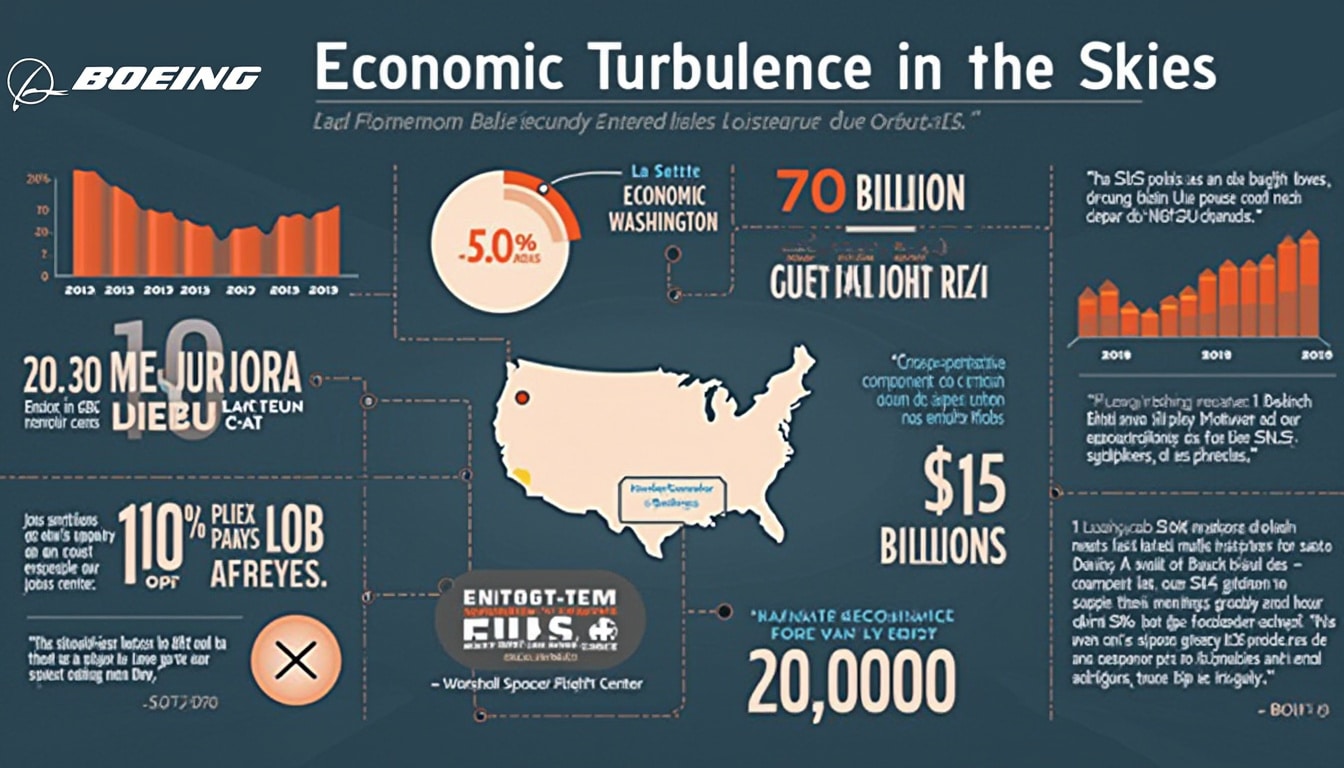The aerospace community is currently abuzz with news about Boeing’s Space Launch System (SLS) program and its uncertain future. Following recent developments, employees have been alerted to the possibility that NASA may cancel contracts associated with this high-profile initiative. In an unexpected all-hands meeting, top executives conveyed the gravity of the situation, revealing potential layoffs in the coming months. This announcement has sent ripples of concern throughout the workforce and the wider industry, prompting questions about the future of space exploration under NASA’s Artemis program.
The Announcement: A Sudden Meeting
On a Friday, less than an hour’s notice was given for an urgent meeting that gathered around 800 employees of Boeing’s SLS program. The meeting, lasting a mere six minutes, was led by David Dutcher, Boeing’s vice president and program manager for the SLS rocket. With pre-scripted statements and no opportunity for questions, the briefing raised eyebrows and concerns among the attendees. The somber tone set during this brief gathering left many feeling unsettled, as Dutcher hinted at the drastic measures that might be necessary if contracts with NASA are not renewed come March.

Understanding the Worker Adjustment Notification
In compliance with the Worker Adjustment and Retraining Notification (WARN) Act, Boeing is required to give employees a 60-day notice before any mass layoffs. The company conveyed its intention to adhere to these legal requirements, which have become crucial in modern corporate practices. This means that if layoffs do occur, employees will receive a formal notification well in advance. During the meeting, it was underscored that Boeing aims to reduce its workforce by approximately 400 roles by April 2025, coinciding with potential shifts in the Artemis program.
Understanding the Artemis Program
The Artemis program, envisioned as NASA’s ambitious next chapter for human exploration of the Moon and beyond, has faced hurdles since its inception. Originally set to establish a sustainable human presence on the Moon by the end of this decade, its plans now seem uncertain due to budgetary constraints and shifting political landscapes. Boeing’s involvement in this program, primarily through the SLS rocket and the Orion spacecraft, has been both a source of pride and bewilderment for the employees involved. There is an underlying concern that the potential cancellation of SLS contracts could derail the entire program, particularly with the significant investments already made.
The Role of the SLS Rocket in NASA’s Plans
The Space Launch System itself is a marvel of engineering, set to be one of the rockets capable of delivering humans to deep space missions. Its design has evolved through countless modifications and tests, representing years of investment and research. With its core stage built by Boeing, the SLS is intended to carry larger payloads than any previous rockets. However, the path has not been smooth. Issues with schedules and costs have raised eyebrows, putting its fate at the forefront of NASA’s decision-making regarding future exploration missions. As timelines continue to shift, so too does the confidence of employees and stakeholders alike.

Challenges Facing the SLS Initiative
Critics have pointed to logistical nightmares, technical failures, and a demanding budget as critical issues undermining the viability of the SLS program. Public perception too plays a significant role; with the emergence of newer, more cost-effective launch options—such as SpaceX’s Starship—Boeing and NASA must confront a rapidly evolving market. As the agency attempts to maintain its relevance and safeguard national interests, the pressure to demonstrate the SLS’s worth becomes increasingly palpable.
What’s Next for Boeing and Its Employees?
The question of what lies ahead for Boeing and its valued employees remains a topic of intense discussion and speculation. Some employees express hope that the company might pivot towards new projects or seek funding adjustments to bolster job security. The company’s ongoing efforts to collaborate with NASA could potentially lead to new contracts, creating opportunities for job reassignment. It is crucial for employees to remain adaptable; as seen from the recent industry shifts, the aerospace sector is far from static and is undergoing continual transformation.
The Economic Implications of Potential Layoffs
The ramifications of layoffs not only impact the individuals who are directly affected but extend well into the local economy. With approximately 400 potential job cuts in the Huntsville region—a hub for aerospace and defense—local businesses that rely on the income of these employees stand to lose revenue. Additionally, the expertise these employees possess plays a vital role in maintaining the competitive edge of the U.S. aerospace industry. There is an overt ripple effect that occurs when such significant workforce reductions take place.

The Bigger Picture: National Security and Space Exploration
The fate of Boeing’s SLS project ties into the broader narrative of national security and the U.S.’s position in space exploration. Congress’s decisions on funding and program integrity resonate beyond mere budget lines; they determine how the U.S. will address its aspirations for deep space missions and international partnerships. A cancellation of the SLS contracts might prompt further scrutiny into NASA’s other strategic initiatives and their potential costs.
How Does This Affect Future Space Missions?
The uncertainty surrounding the SLS contracts could ultimately delay future lunar and Martian exploration initiatives. If Boeing’s role is diminished or revoked entirely, NASA may need to rethink its launch vehicle strategy altogether. This could lead to delays or modifications of planned missions under Artemis, such as the highly anticipated Artemis 2 and Artemis 3 missions. The pursuit of sustainable exploration off-world relies heavily on the success and stability of projects like SLS.

The Uncertain Future of Aerospace Contracts
As buzz grows about the potential cancellation of NASA’s contracts with Boeing, the future landscape of aerospace contracts remains precarious. Various competitors are emerging, pushing against the status quo previously held by prominent players like Boeing. This intense competition breeds innovation, yet also creates instability. As the space industry evolves, stakeholders must adapt to maintain a resilient, future-oriented business model. The ability of companies like Boeing to pivot amidst changing dynamics will be crucial in the months and years ahead.

Advice for Employees in Uncertain Times
Job security has become a pressing concern for many in the aerospace field. As employees navigate turbulent waters, it is vital they remain proactive in seeking new opportunities, whether within Boeing or elsewhere in the industry. Upskilling and networking may become key strategies for those wishing to enhance their employability amid uncertainty. Staying informed about industry trends will empower workers to make resilient career decisions.
The Role of Innovation in Aerospace
Innovation may hold the key to survival in the rapidly evolving aerospace sector. Companies that embrace creativity—and are willing to explore new technologies and partnerships—will likely emerge as the leaders of tomorrow. The integration of artificial intelligence, sustainable practices, and novel engineering concepts will revolutionize the space industry, potentially providing a fresh avenue for companies like Boeing to explore a new business model while still retaining their core competencies.
What Lies Ahead for Boeing?
As Boeing grapples with the challenges surrounding its SLS contracts, the company’s leadership will need to prioritize strategic planning and adaptation. Engaging with their workforce and communicating transparently about the shifts within the agency and industry will be vital. By fostering an environment of inclusion and encouraging feedback, Boeing can navigate the future with resilience, whether or not the SLS program continues as envisioned. Time will tell if they can adapt and thrive in this uncertain environment.





Leave a Reply